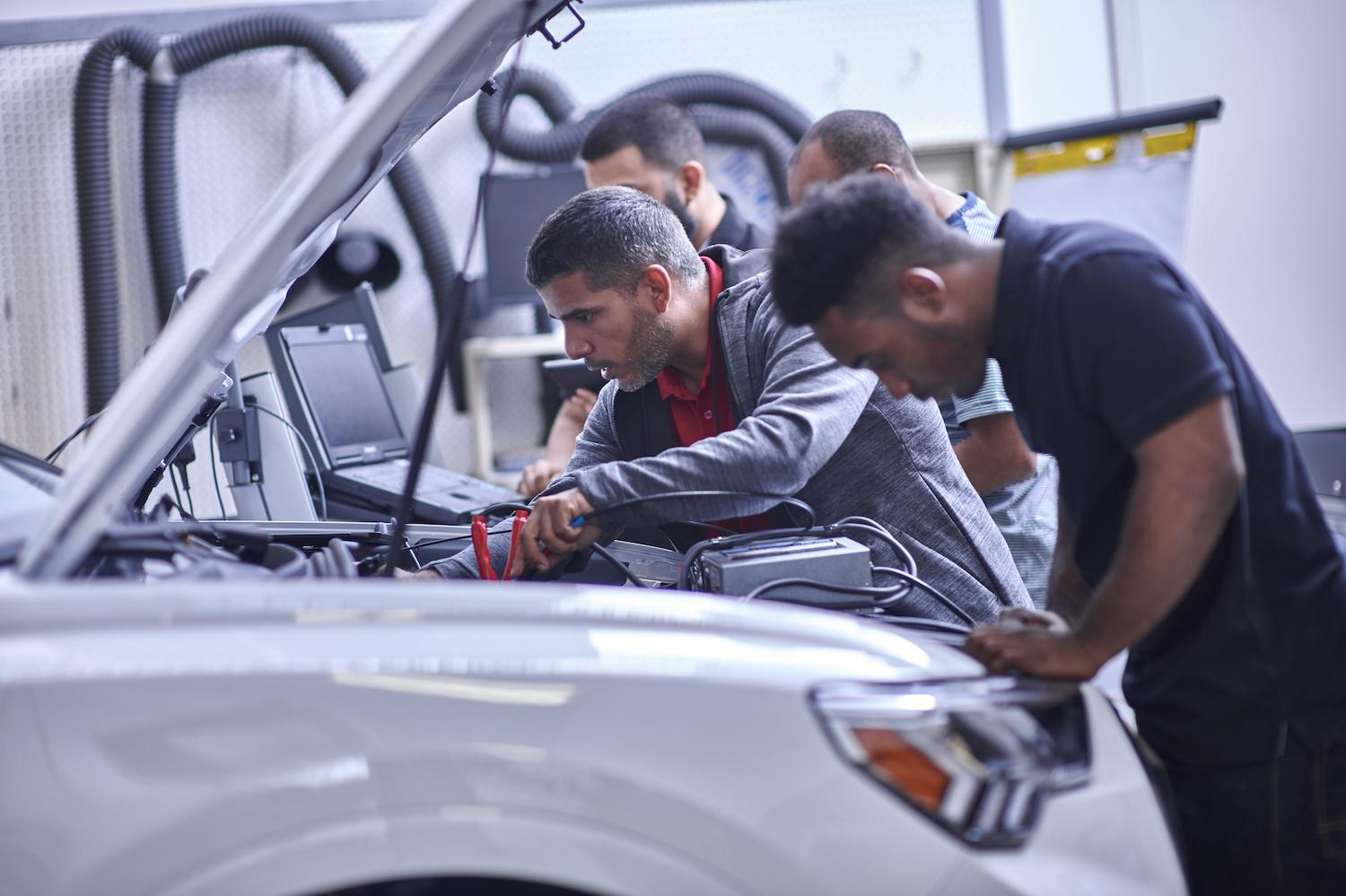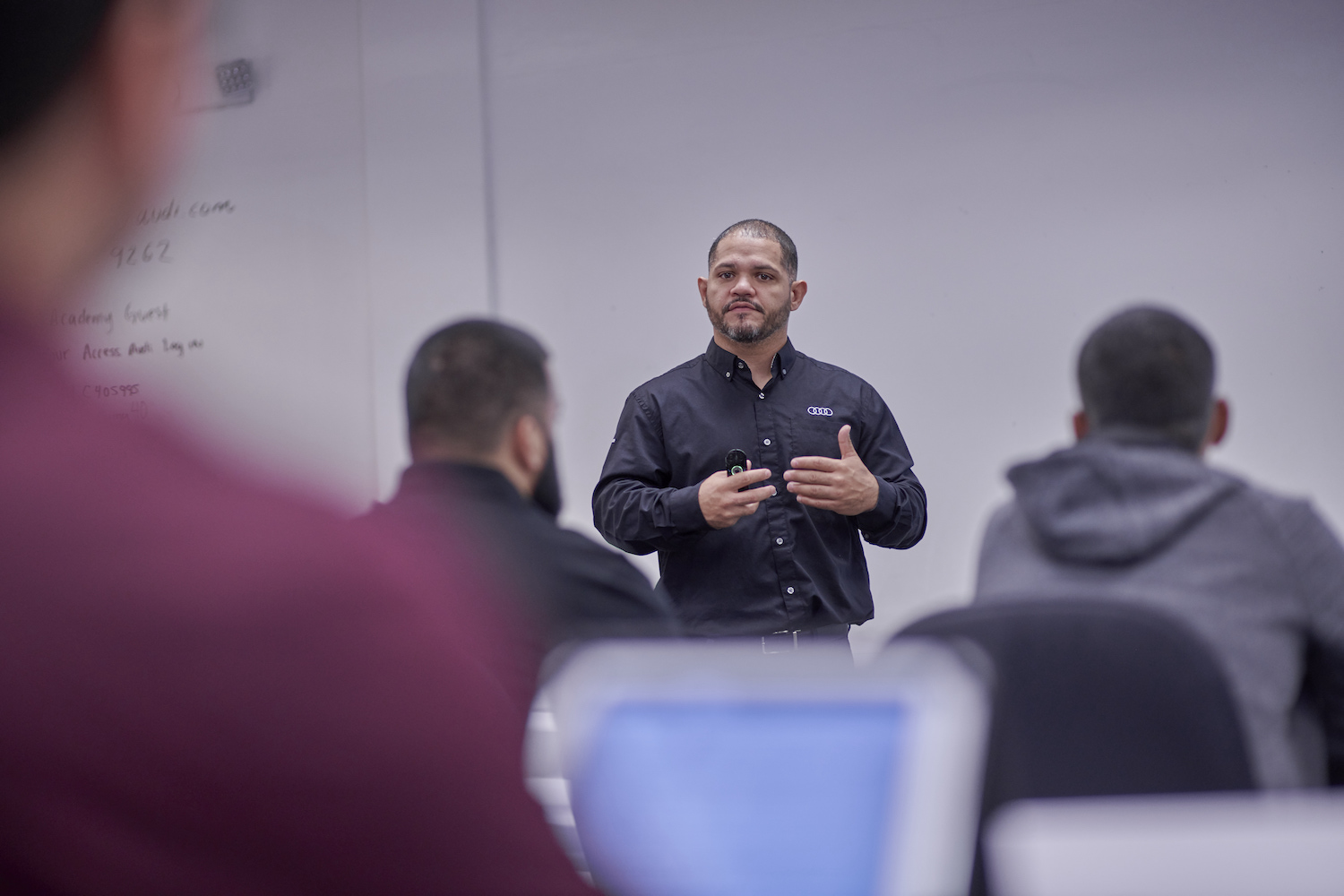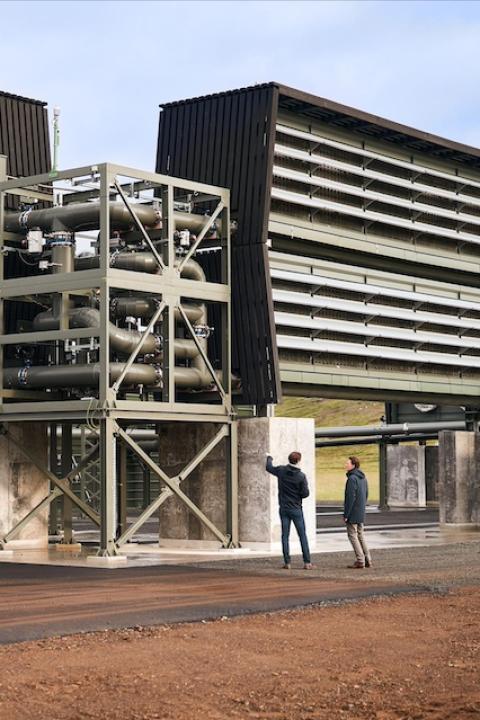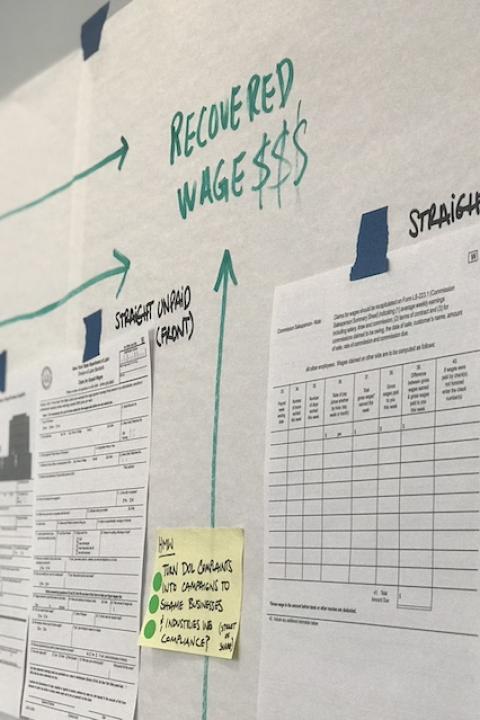
As the market for electric vehicles grows, so too must the number of automotive technicians with the appropriate skills to work on EV powertrains.
Electric vehicles generally require less routine maintenance than those powered by internal combustion engines. But that doesn’t mean EVs are simple machines without their own unique servicing requirements.
For example, when you take into account the individual control modules for each battery cell and the intricate software that connects everything on an EV drivetrain, “that’s very complex, way more complex than for previous models,” Brian Stockton, senior director of technical services and training at Audi of America, told TriplePundit.
Such EV-specific technical differences require automotive technicians to develop new skillsets in order to look after these vehicles. Recognizing how needs are changing, Audi is looking to train new people to service its growing portfolio of electrified cars, Stockton said.
The timing is crucial. At the same moment the number of electric vehicles on the road is growing, the baby boomer generation is retiring out of the workforce, taking away a significant number of older automotive technicians from dealerships.
Audi of America developed its Audi Education Partnership (AEP) to meet this moment of a looming skills shortage. This in-house program is designed to attract the next generation of auto technicians. It gives participants a job and an education at the same time and, most importantly, does so at no cost to the student.
A new workforce for electric vehicles: Audi’s plan to train EV-competent auto technicians
Audi's program focuses on candidates who have some grounding in automotive training at the outset. “We looked at the National Automotive Technicians Education Foundation (NATEF) certification and said, 'That’s our baseline,'” Stockton said.
This certification, administered by the Automotive Society of Engineers (ASE), is an industry-standard qualification for a career as an automotive technician. Since EVs and conventionally-powered cars have many common components and systems, Audi considered this certification necessary before students could embark upon the next step.
That next step involves gaining access to Audi’s online courses, which the company makes available through partnerships with 64 accredited schools across the U.S. Students must work through 72 web-based modules and pass an assessment after each one.
Students can take as long as they want to work through these modules, during which time “there is no associated cost,” Stockton said. Some students might work to gain their NATEF certification at the same time they are working through Audi’s content. Once they complete both of these prerequisites, “that’s the ticket to get into AEP,” Stockton said.
When students enter the AEP program, “We take their name, their location and we merge them with a dealership that’s looking for a technician,” he said. “We put the two together, the dealership hires the student, and then they are officially in a very defined 18-month program.”
The ultimate goal for participants is to reach “expert level” — the midpoint of five skills tiers Audi recognizes within its dealerships. “Expert level is really the heart of it,” Stockton said. “If someone gets to expert level, they could spend their entire career here and be very effective and be able to perform all repairs.”
Before Audi launched AEP, a technician might attain expert level within the company’s dealer network in three to six years, or more. But the new program is specifically designed to accelerate the process. It combines day-to-day work at a dealership — where students earn an hourly wage — with eight weeks of offsite training at one of Audi’s 11 learning centers around the country.
The eight weeks of in-person, instructor-led sessions are spaced out over the duration of the AEP program in one-week increments. Each participant is placed into a class of 12 students from around the country. Those same 12 come together each time and are typically rotated through five to eight of those Audi learning centers. Students also work through more of Audi’s web-based content over the 18-month period of the program.

Upon graduation, they are qualified to service electric vehicles at the expert level. “They’re taking batteries out of vehicles, going through all the diagnostics,” Stockton said. “There’s nothing they can’t do to our vehicles at that point.”
The program has piqued interest from a new type of candidate, he said. “We still attract people who like to work with their hands, who like to tear engines and transmissions apart. But what’s new about this with EVs, we’re attracting people who are really engaged in the diagnostic and analytical mindset.”
Audi also has a program for existing veteran technicians to make sure they are not left behind when it comes to EV technology. “We have our Advanced Diagnostic Training course that we launched to help get the rest of our technician base — that are interested — ready for this,” Stockton said.
Measuring success
Around 130 students graduate from the AEP program each year, and the company’s investment in people is already paying off.
“[When] we look at technician retention at our dealers ... in general we lose 30 percent after six months,” Stockton said. “But if we look at this program, we lose less than 4 percent.”
This is a win on multiple levels, he said. Graduating students are more committed to the brand, and the dealers benefit from their service staff having access to accelerated training. Audi benefits, too, because carefully trained technicians enhance the customer service the company can provide. Given the early success and scalability of AEP, Stockton concluded simply, “We’re going to continue with this model.”
Images courtesy of Audi

Phil Covington holds an MBA in Sustainable Management from Presidio Graduate School. In the past, he spent 16 years in the freight transportation and logistics industry. Today, Phil's writing focuses on transportation, forestry, technology and matters of sustainability in business.














